Lawyer, author and social leader Juan Grabois asked the courts to withdraw the barriers around Cristina Fernández de Kircher’s flat days before the failed attack on her life. He says that it was the “grace of God” which intervened to prevent the assailant’s bullet from leaving the gun and killing her.
The 39-year-old Catholic leader, a member of the Movimiento de Trabajadores Excluidos (Movement of Excluded Workers, MTE) and Confederación de Trabajadores de la Economía Popular (Confederation of Workers of the Popular Economy, CTEP), analyses the attack, the political situation and the increase in symbolic violence working against democracy.
What drove you to remain within the Frente de Todos caucus, independently of the [income supplement] measure?
That measure is fundamental because, within the legitimate political negotiations with our tiny force, we place it at the service of the poorest sectors – that’s our priority. Of course, what happened to Cristina [Fernández de Kirchner] would have postponed our decision [to leave the caucus], even without that measure. But it’s one of those things in life that just a couple of hours before the assassination attempt, she herself confirmed to us that the measure would be going through.
Cristina does not lie, unlike other politicians, so for us her word is a guarantee. Afterwards it was confirmed when Sergio Massa’s decree was announced. We are now awaiting the implementation but we know that it’s a programme which will last three months while we discuss a permanent law with its focus fundamentally on the population in extreme poverty, who are many in Argentina – it’s a scandal. Over four million destitute people who do not eat, who are informally employed or in the popular economy and cannot make ends meet.
To be against this population having an income equivalent to the basic food shopping-basket is to deny the right to eat, it’s really crazy. It does not have a great fiscal cost compared to what other sectors with greater purchasing-power take away. Our political and social struggle is to try and resolve these problems of reality as far as our strength allows.
And on the other hand, with what happened to Cristina, we were not going to add more noise in a moment when peace and national unity are necessary towards a basic democratic consensus. We should not persecute political opponents nor encourage or engage in physical violence nor promote a discourse of cancellation, which today is termed hate speech. It was for such consensus that God saved Cristina, in the eyes of we believers.
I remember that many people who knew Pope Francis here in Argentina said that when he became the pontiff in Rome, he changed from a frowning to a smiling person with more energy. A contributor to Perfil over many years, Rodolfo Terragno, said that it was the power which produced that effect while believers speak of the Holy Spirit and you recently said God saved Cristina. Give us the perspective of a believer as to what happened in the moment of the attack.
What is called the grace of God is the form in which divine intercession acts in history. And it was a blessing for the Argentine people, besides for Cristina, her family and her loved ones, that the bullet never left the gun. I’m not an expert but I did a postgraduate degree in Criminal Psychology to understand politics and I spoke to a forensic scientist whom I got to know in that context and who told me that it was a defect of the weapon, not its use. Even for an unbeliever like himself, something must have happened. And I believe that God protected our Fatherland as well as Cristina because the situation of generalised violence and the damage which would have been produced if that bullet had left the gun would have been irreparable in our history but the bullet did not leave the gun. So you have to be grateful to destiny or to coincidences. I don’t believe in coincidences but somebody else might while those of us who believe are very grateful to God for what happened.
According to a Hegelian perspective, history has its logic with its actors as bodies used by the spirit of history. That the spirit of history causes bodies to follow a certain path is obviously metaphysical, like the Catholic religion. Regardless of how you resolve the bullet not leaving the gun, this changes political history. Does it deposit anything more or less perennial?
Yes, returning to Hegel, the leap from quantity to quality. We have been seeing a quantitative increase in Argentine political violence, passing from the symbolic to the manifest, from words to deeds with the presence of lethal elements – a knife and an ammunition clip in the immediate vicinity of Cristina’s flat, symbols of the scaffold, direct death threats, a woman with a knife, the weapons, the militarisation of the place. Those are quantitative changes as when water is boiling. Then comes a qualitative change when it turns into steam. And here there was qualitative change, escalating to an attempted political assassination. And we cannot speak of a lunatic because neither he nor his accomplice had a degree of pathology preventing them from being aware of their actions.
His accomplice would be his girlfriend.
Today we know two of the actors and we know their stage, which falls in this context of incremental violence. What we do not know is the scriptwriter and the director and perhaps some of the supporting cast. I have absolutely no doubt as an interpreter of social reality and as a professional that there was criminal planning here with layers of instigation whose extent we do not know. I know a lot about the world of itinerant peddlers.
Surely as few people do.
You cannot hawk candy floss in Recoleta without police links, there is no possibility and this person had been there two or three times. I also have it absolutely clear that the contents of mobile telephones are not erased by accident. If the would-be assassin had sufficient knowhow to install a programme to format his mobile in those circumstances, he is not a crackpot, the two things are incompatible and clearly there is some level of police intelligence complicity to erase the evidence. But this means it was probably done to save the hide of some participant or that he had links with those people, perhaps without knowing what would be the final result of his media presence doing intelligence there. So I have the firm opinion that there was a criminal plan with a chain of instigation and of course groups with contacts with extreme elements, not only in political but also cultural terms – extreme pornography, extreme music, the culture linked to the kind of tattoos used by this person. Those are the zones for recruiting the people to do bad things. What I do not like is that the hypothesis of superior levels has already all but been ruled out.
A mastermind who is not the assailant.
Exactly, and a mastermind of some importance cannot be ruled out.
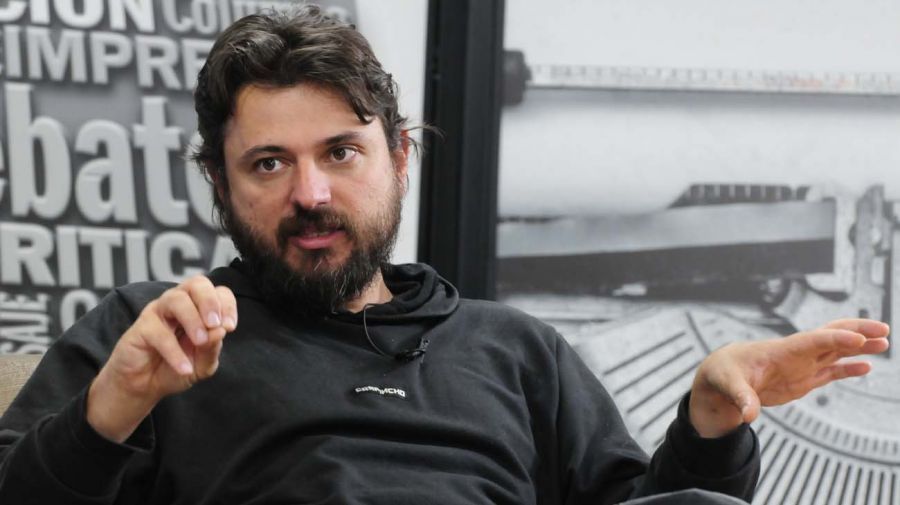
Let’s take advantage of that Criminal Psychology postgraduate degree. If you had to lecture on this subject, what profile of this personality would you give?
A vulnerable person, easily influenced and conscious of his actions with a capacity for planning and knowledge of handling weapons who was looking for a place in history on the basis of this deed and that somebody gave him the possibility of doing it, encouraging an action which he could not have developed on his own account – that is part of the profile. And then there is another element from when I was talking to you about a qualitative change. This situation opens up a possibility which had been ruled out in Argentina – a political assassination attempt – and now that it has happened, it opens up the appearance of individual responses. So that is a danger for democracy, the Fatherland and all political leaders. That’s why it seems to me pretty deplorable that it was not possible to rally any generalised repudiation with consensus over three or four basic points to halt that context with all that could contribute. So that seems to me to leave open the possibility of assassination attempts and lethal violence.
Of future assassination attempts.
Of future assassination attempts, that possibility is left facing us.
To make a plausible conjecture, symbolic elimination is one thing and physical elimination another. The latter would probably have caused the symbolic weight of Cristina Fernández de Kirchner to grow even more, turning into a historic milestone as a kind of sanctification. We might say that would not suit those seeking her symbolic elimination.
The same companies which Che Guevara would have expropriated have no problem selling his T-shirts. The issue is to neutralise the political figure and their capacity for action. There would be no problem here if Cristina were to be immortalised.
But don’t you imagine that there would have been a civil war and scenes of violence with everybody losing out?
What I do know is that there would have been a climate of generalised violence but not everybody loses out in chaos. The Shock Doctrine is a very interesting book.
Written by Naomi Klein. But now the first house to be burnt down would happen to be that of the opposition leaders.
But this is not a problem of Argentine politicians, at least not a problem of people within the democratic framework.
You see it as international.
I see economic interests.
You expressed a relationship between extreme music, extreme culture and extremist ideology and you know, I would say like few people, the world of outsiders. What do you see there and how could you explain it to middle-class people in their comfortable bubbles who have never encountered life on the fringe? What is that extreme world and what culture is generating or degenerating there?
The poor and excluded find themselves in extreme social conditions but they do not have an extreme culture, looking for land, a roof and a job despite those extreme social conditions.
You stated a month ago that there could have been situations of major conflict in these last two years of pandemic and post-pandemic. How did they worsen that social climate and how come they did not increase the number of people breaking into supermarkets to get food but extreme right groups instead?
There has been some looting but luckily the food deliveries have improved. I think to the degree that this is implemented, the year will end well but we need to be aware of the gravity of the socio-economic situation, not only for the most destitute fringe but, I insist, the self-employed middle-class sectors or wage-earners – this phenomenon of the ‘Working Poor,’ the formally employed with midyear and Christmas bonuses and paid holidays yet below the poverty line. This is a relatively new phenomenon. Beforehand, you could not buy everything you wanted but you were not poor. Now you can work eight hours a day formally employed by a normal company and yet you are poor and thus dispossessed because your income does not permit you to have assets or even a small flat. Hence that situation – and it is a global situation – where the wages do not permit you a perspective of even minimal satisfaction. On top of that you have the cultural bombardment of the extreme happiness of a happy minority which exists somewhere enjoying life and everybody sees it. What becomes socialised is that these people exist and that life exists and there are many of them but you do not enter there, generating plenty of frustration.
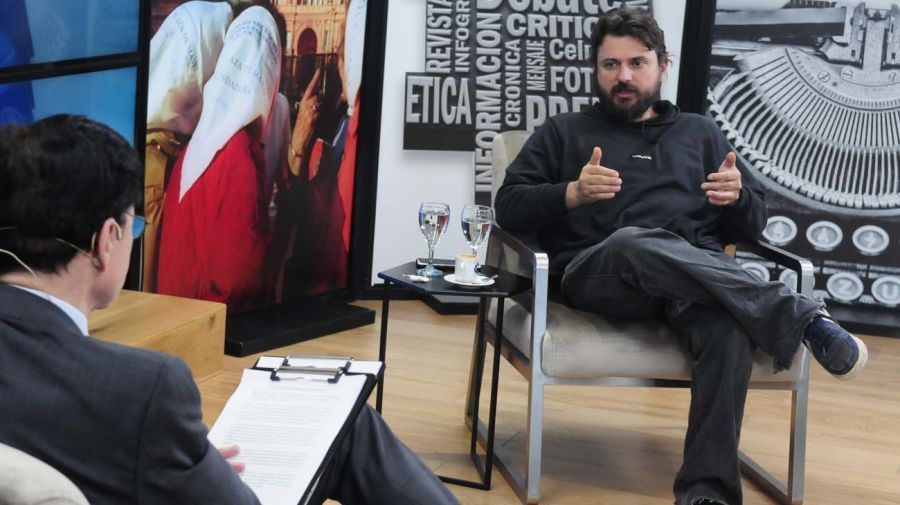
We are entering now into cyclical issues. How do you imagine the economy reaching next year’s elections if [Economy Minister] Sergio Massa succeeds in his reforms and what would be success?
My fear is that in exchange for temporary stability, Argentina’s common assets are mortgaged for some time to come. A structure for looting has already been created which will be difficult to reverse afterwards. Norway created a fund with its oil, even Brazil created a fund to guarantee education. [Mexican President Andrés Manuel] López Obrador has announced the nationalisation of lithium while here contracts are being handed over to business groups closely linked to Massa who came to see him being sworn in as minister. That bothers me. I think it will be up to the conscience and the historic vision which Sergio Massa might or might not have whether he becomes the scorpion of the fable who rides the tortoise helping him to cross the river and who stings him because he cannot help himself. My experiences of negotiation with Massa were not good, he did not keep his word. I’m talking about negotiations over simple questions like recycling in Tigre or seeking measures making an impact on behalf of the most impoverished sectors. They were not experiences...
...in which he did not keep his word because it might have been impossible or complex.
They might have been complex. I don’t want to cancel anybody but I believe there’s a bit of this idea that in order for a politician to be successful, you have to shit on people, you have to make your career over other people’s dead bodies. That’s not what I want for Argentina. I’m not saying that Massa is necessarily like that, I’m saying that he might or might or might not be the scorpion of the fable. In that case the tortoise would be Cristina, in a manner of speaking, because I think that she has empowered him due to the need for a figure of authority within the framework of a Brancaleone-style of a gang which couldn’t shoot straight where the imports are defined a bit by the Central Bank, a bit by [former Productive Development minister Matías] Kulfas, where the Economy minister decided that he wanted to go back to his old life in a totally irresponsible way in a situation which required a figure of authority. We shall see if that figure of authority is used for the common good or not, that is something which remains to be seen and will depend on him.
Moving on to concrete examples, would you like Cristina Fernández de Kirchner to be the presidential candidate of Frente de Todos?
I don’t know, in 2019 I was sure but now I don’t know. My ideal candidate would be a man or woman rising from the bottom.
And from another generation, perhaps, but also for next year?
No, I don’t know, I haven’t got it clear. If Cristina decides to run, I’m going to support her. I never was a fan of Cristina, as I always say, but she is part of my political history and our people love her. That’s very strong. In the Plaza de Mayo marches we, as a social organisation, never mobilised for political causes, never. We co-operatives only mobilise for social vindications. And if there is a political march and someone wants to go, they can but without banners. I beg them not to go with banners because that is a political activity. And they go a lot because they want to and the neighbourhoods are very agitated.
Juan, when Cristina had to testify at the Comodoro Py [courthouse] in 2016, and she was on her own with supposedly not much of a political future ahead of her, you were one of the two people to accompany her at that moment. Misfortune breeds empathy in others. Do you see the vice-president confronting that situation increasing the electoral scope of Frente de Todos next year?
Perhaps, perhaps not. I think that what it does is draw a curtain from the momentum of polarisation for a while, opening up a window. That can cut one way or the other. When I speak of polarisation in Argentina, I always define that polarisation as mainly social and drawn by the poverty line but in this particular case there is also a victim. If it had happened to [Buenos Aires City Mayor Horacio] Rodríguez Larreta or to [ex-president Mauricio] Macri, they would be the victims of an attempt at magnicide and Kirchnerism, Peronism and the national and popular field would have to make the gesture of a very important effort to make clear that while they have all the differences in the world with that person, what happened is terrible and that they are on the side of the victims. I think that rather than increase the vote for Cristina, the opportunistic and insensitive attitudes of a sector of the opposition could position us because fortunately bad people are still a minority in Argentina. Because if somebody puts a pistol to the head of Macri or his wife and I don’t care, I laugh, taking it lightly, then I’m a bad guy because that is wrong.
In that sense, would the idea that it could have been staged also fit into that notion of evil?
Staged by Cristina herself, you mean to say?
Exactly.
And evidently the way to take this lightly is to say that it was just a crazy dude with a gun and nothing happened. I’ve read in editorials and important newspapers that he was just a crackpot with a gun and then come 10 paragraphs saying how awful Cristina is.
Well, one thing does not rule out the other, that he was a crackpot with a gun but that something very serious happened all the same.
Absolutely.
Now that differs from directly saying that she staged it herself.
That does differ...
Or do you mistrust that it could have been like that.
I don’t have much information on this issue but I do have a piece of information which I’m going to tell you half in code. I know that there are people in the courts and the intelligence services who are working on the hypothesis of a staged attack. I know that from people who have been pressured to participate in that. I don’t think that there is any margin for doing that because too many things would show up. Perhaps they had something when those photos of the prior intelligence or the woman with the gun were not around – with one person it’s easier but with two people already more difficult. But I know that there were important people of the judicial branch linked to intelligence trying to convince other people to construct that hypothesis.
Producción: Sol Muñoz y Sol Bacigalupo.





















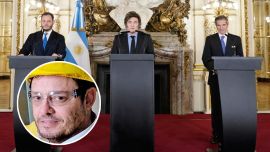
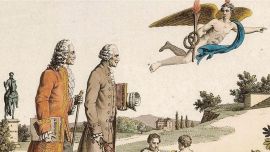
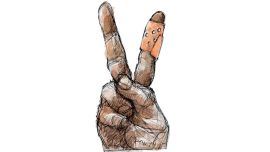

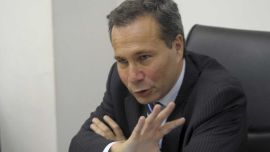
Comments